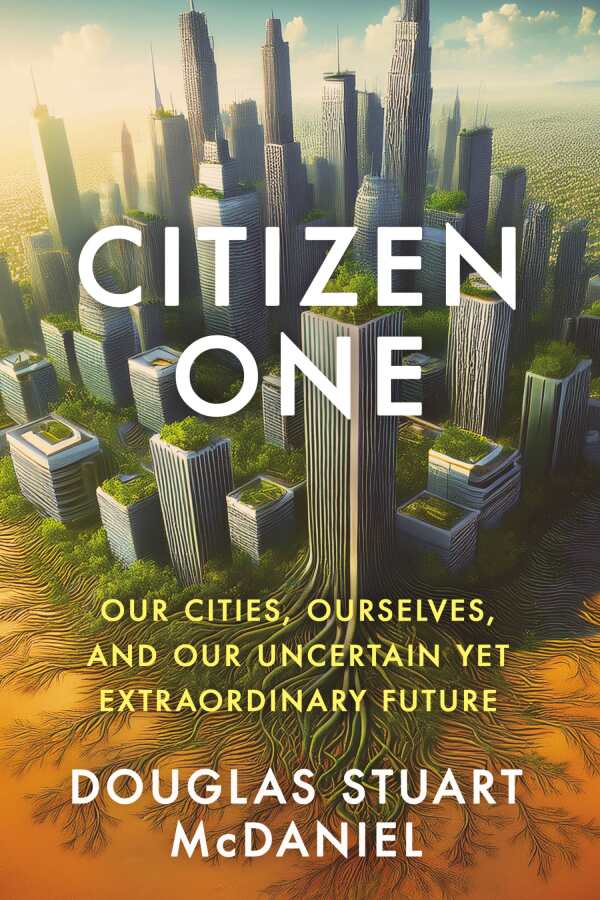Citizen One
Our Cities, Ourselves, and Our Uncertain yet Extraordinary Future
Covering urban theory, global politics, and ecological urgency, Citizen One is a compelling—and personal—social science survey.
Citizen One, Douglas Stuart McDaniel’s ambitious memoir–cum–social science survey, reckons with power, planning, and the precarity of future cities.
McDaniel worked on Saudi Arabia’s megaproject NEOM. His book draws on that experience to discuss urban theory, global politics, and ecological urgency. Personal asides to cover situations like the death of McDaniel’s ex-wife from cancer and the gender affirmation process of his child reflect unsettled feelings in both work and life, used to strengthen the book’s calls for people to show up, ask better questions, and build with care and humility. Indeed, the book argues for a new civic consciousness in both intimate and expansive terms, insisting on the possibilities of constructing a future more in tune with the needs of citizens.
Herein, cities are treated as manifestations of collective values and wills. The book asserts that constructing them thus must involve honest, often uncomfortable, engagements with inequality, the climate crisis, and governance. Examples including Barcelona’s walkable streets are used to situate the book’s reflections on lived-in, contradictory spaces. It proposes that if cities of the future are not human scaled, adaptable, and radically inclusive, they will fail.
The book’s structure supports its dual aim of personal and political reflection. Divided into three parts, it begins by exploring the historical and imaginative roots of city making. It then moves into a grounded account of McDaniel’s experiences at NEOM, its most prominent example of futuristic cities. The planned AI-powered, zero-carbon city in the desert is treated as a testing ground for new technology and the limits of civic will and collective imagination. The book focuses on the everyday contradictions of the vast project, highlighting the gap between its grand slogans and the unfinished building on the ground, and between glossy, speculative renderings and the reality of life in an emerging, unsettled city. These observations are rendered with questioning clarity.
The text concludes with a cautious, forward-looking vision of what cities and citizens might become in the future. Its progression mirrors McDaniel’s recorded transformation from a policy skeptic into an urban builder. Its supporting materials, citations, references, and footnotes build credibility, as with references to United Nations reports, city planning documents, journalism, and architectural theory. Although the text is repetitive in places, as where it declares the enormity of creating a future cityscape from desert sand, its engagement with the moral and material dilemmas of future building is consistent and compelling. While it does not proclaim to resolve the dilemmas it names, it insists that they be faced on an individual and collective basis.
Personal and political, the speculative social science survey Citizen One reckons with the future of cities and what they mean for how people choose to live their lives.
Reviewed by
pine breaks
Disclosure: This article is not an endorsement, but a review. The publisher of this book provided free copies of the book and paid a small fee to have their book reviewed by a professional reviewer. Foreword Reviews and Clarion Reviews make no guarantee that the publisher will receive a positive review. Foreword Magazine, Inc. is disclosing this in accordance with the Federal Trade Commission’s 16 CFR, Part 255.

